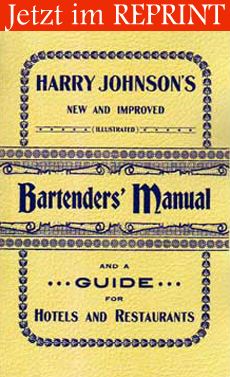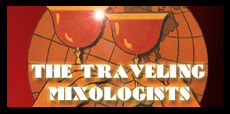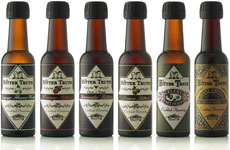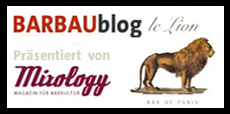Das Vokabular unserer Zunft
 Gehen wir tagtäglich mit Begriffen wie Mixology, Mixologist, Bartender, Barkeeper um, hinterfragen wohl nur wenige die Ursprünge diese Bezeichnungen. Hat doch wie alles auf dieser Welt einen Ursprung (und ein Ende, welches uns nicht allzu bald ereilen sollte), so ist eine Suche nach dem Beginn, sozusagen einer Begriffsforschung, in Zusammenhang mit den zeitgeschichtlichen Rahmenbedingungen überaus lehrreich.
Gehen wir tagtäglich mit Begriffen wie Mixology, Mixologist, Bartender, Barkeeper um, hinterfragen wohl nur wenige die Ursprünge diese Bezeichnungen. Hat doch wie alles auf dieser Welt einen Ursprung (und ein Ende, welches uns nicht allzu bald ereilen sollte), so ist eine Suche nach dem Beginn, sozusagen einer Begriffsforschung, in Zusammenhang mit den zeitgeschichtlichen Rahmenbedingungen überaus lehrreich.Als unsere Vorfahren der Zunft die ersten Drinks mixten, sicherlich von vielen belächelt, gab es keinen Begriff für die Tätigkeit der sie nachgingen, unschöne Bezeichnungen waren anfänglich sicher von Seiten der Bier- und Straight-Trinkergemeinde an der Tagesordnung.
Im Jahr 1948, H. L. Mencken veröffentlichte im New Yorker Magazine ein Essay mit Namen "The Vocabulary of the Drinking Chamber" in dem er Einblicke in die Herkunft verschiedener Begriffe aus dem Barbereich gibt.
"A good way to discover the paucity of bartenders’ neologistic powers is to ask yourself what they call themselves. Have they ever invented a fancy name comparable to the mortician of the undertakers, the realtor of the real-estate jobbers, the ecdysiast of the strip teasers, or the cosmetologist of the beauté-shoppé gals? Alas, they have not, and it seems very unlikely that they ever will. Even so silly a term as mixologist was devised not by a practicing bartender but by some forgotten journalist writing in the Knickerbocker Magazine in 1856. He intended it sportively and it has remained on that level ever since, along with colonel for a whiskey drummer and professor for a kneader of pugilists. In 1901, the Police Gazette, then at the apex of its educational influence, attempted to revive and glorify mixologist, but the effort failed miserably, and bar clerk was soon substituted, and likewise failed. Barman, borrowed from the English, has been put forward from time to time, and there used to be an International Barmen Association in New York, but I can no longer find it in the Manhattan telephone book, and its former spot is now held by the International Bartenders School, on Forty-sixth Street, which has a Yale for its Harvard in the Bartenders School, Inc., on Forty-ninth Street. Both have excellent reputations in scholastic circles. All the existing unions in the profession, so far as I have been able to track them down, use plain bartender in their titles, and so do the various social clubs, choral societies, and leagues against prohibition and Communism. Some time ago, Oscar Haimo, of the Hotel Pierre, described himself as mâitre de bar in the advertising of his latest book, “Cocktail and Wine Digest,” but I have yet to hear a second for it. Nor is there any visible support for server, which made its début in New Jersey January 1, 1911 . Forgetting the vulgar barkeeper and barkeep, only bartender survives, a lowly word but a sound one. It arose from unknown sources during the Gothic Age of American boozing, c, 1855, and is of purely American genesis, though the English now toy with it. So is barroom, which was used by John Adams in 1807. And so is bar (the room, not the service counter), which was first heard of in 1788. The English barmaid has never caught on in this country; perhaps it suggests too strongly the poetic but smelly milkmaid. There are many females behind our more democratic bars, and I know one in Baltimore who is a first-rate artist, but if you called her a barmaid, she would crown you with the cop’s bottle."







Keine Kommentare:
Kommentar veröffentlichen